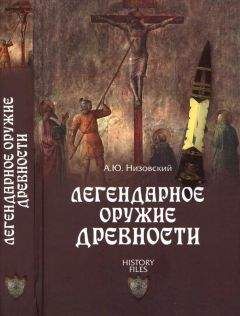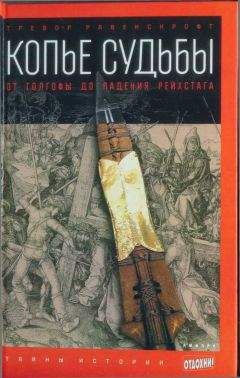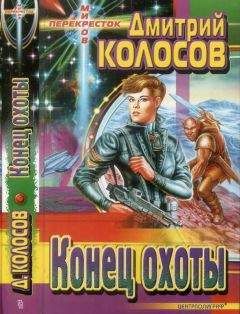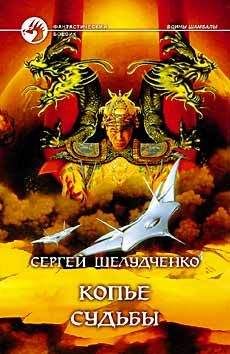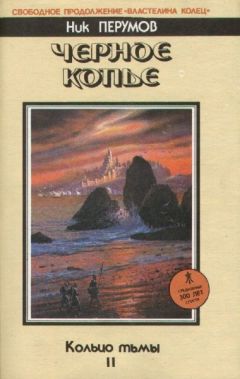Джон Кейжу - Открытия, которые изменили мир
Weiner D. B. Philippe Pinel’s «Memoir on Madness» of December 11, 1794: a fundamental text of modern psychiatry // American Journal of Psychiatry, 1992. Vol. 149, June. Pp. 725–732.
Whitrow M. Wagner-Jauregg and fever therapy // Medical History, 1990. Vol. 34. Pp. 294–310.
World Health Organization (WHO). 2001. Mental Health: New Understanding, New Hope // http://www.who.int/whr/2001/en/whr01_en.pdf.
World Health Organization (WHO). 2006. Dollars, DALYs and Decisions: Economic Aspects of the Mental Health System // http://www.who.int/mental_health/evidence/dollars_dalys_and_decisions.pdf.
World Health Organization (WHO) and World Organization of Family Doctors (Wonca). 2008. Integrating mental health into primary care: a global perspective // http://www.who.int/mental_health/policy/Mental health + primary care- final low-res 140908.pdf.
Глава 10Barnes P. M., Bloom B., Nahin R. CDC National Health Statistics Report #12. Complementary and Alternative Medicine Use Among Adults and Children: United States, 2007 // National Health Statistics Reports (National Center for Health Statistics, Centers for Disease Control and Prevention), 2008. Vol. 12, December 10. Pp. 1–24.
Benedic A. L., Mancini L., Grodin M. A. Struggling to meditate: contextualising integrated treatment of traumatized Tibetan refugee monks // Mental Health, Religion & Culture, 2009. Vol. 12. No. 5, July. Pp. 485–499.
Bivens R. Alternative Medicine? A History. New York: Oxford University Press, Inc, 2007.
Chopra A., Doiphode V. V. Ayurvedic medicine: core concept, therapeutic principles, and current relevance // Medical Clinics of North America, 2002. Vol. 86. No. 1, January. Pp. 75–89.
Daniloff C. Treating Tibet’s traumatized // Bostonia: The Alumni Magazine of Boston University, 2009. No. 3, Fall. P. 13.
DeVocht J. W. History and overview of theories and methods of chiropractic // Clinical Orthopaedics and Related Research, 2006. Vol. 444, March. Pp. 243–249.
Dunn P. M. Galen (AD129–200) of Pergamun: anatomist and experimental physiologist // Archives of Disease in Childhood (Fetal and Neonatal Edition), 2003. Vol. 88. No. 5, September. Pp. F441–F443.
Eisenberg D. M., Kessler R. C., Foster C. et al. Unconventional medicine in the United States: prevalence, costs, and patterns of use // The New England Journal of Medicine, 1993. Vol. 328. No. 4, January 28. Pp. 246–252.
Eisenberg D. M., Davis R. B., Ettner S. L. et al. Trends in alternative medicine use in the United States, 1990–1997 // Journal of the American Medical Association (JAMA), 1998. Vol. 280. No. 18, November 11. Pp. 1569–1575.
Homola S. Chiropractic: history and overview of theories and methods // Clinical Orthopaedics and Related Research, 2006. Vol. 444, March. Pp. 236–242.
Jonas W. B., Kaptchuk T. J., Linde K. A critical overview of homeopathy // Annals of Internal Medicine, 2003. Vol. 138. No. 5, March 4. Pp. 393–399.
Kaptchuk T. J., Eisenberg D. M. Varieties of healing. 1: Medical pluralism in the United States // Annals of Internal Medicine, 2001. Vol. 135. No. 3, August 7. Pp. 189–195.
Kaptchuk T. J., Eisenberg D. M. Varieties of healing. 2: A taxonomy of unconventional healing practices // Annals of Internal Medicine, 2001. Vol. 135. No. 3, August 7. Pp. 196–204.
Keating J. C., Jr., Cleveland C. S., III, Menke M. Chiropractic History: A Primer. Davenport, Iowa: Association for the History of Chiropractic, 2004.
Khuda-Bukhsh A. R. Towards understanding molecular mechanisms of action of homeopathic drugs: an overview // Molecular and Cellular Biochemistry, 2003. Vol. 253. Pp. 339–345.
Kilgour F. G. William Harvey and his contributions // Circulation, 1961. Vol. 23, February. Pp. 286–96.
Knoll A. M. The reawakening of complementary and alternative medicine at the turn of the twenty-first century: filling the void in conventional biomedicine // Journal of Contemporary Health Law and Policy, 2004. Vol. 20. No. 2, Spring. Pp. 329–366.
Leis A. M., Weeks L. C., Verhoef M. J. Principles to guide integrative oncology and the development of an evidence base // Current Oncology, 2008. Vol. 15 (Supple 2). Pp. S83–S87.
Lüderitz B. The discovery of the stethoscope by T.R.H. Laënnec (1781–1826) // Journal of Interventional Cardiac Electrophysiology, 2009. July 29 // http://link.springer.com/article/10.1007%2Fs10840-009-9407-6.
Marketsos S. G., Skiadas P. K. The modern Hippocratic tradition: some messages for contemporary medicine // Spine, 1999. Vol. 24. No. 11. Pp. 1159–1163.
Meeker W. C., Haldeman S. Chiropractic: a profession at the crossroads of mainstream and alternative medicine // Annals of Internal Medicine, 2002. Vol. 136. No. 3, February 5. Pp. 216–227.
Micozzi M. S. Historical aspects of complementary medicine // Clinics in Dermatology, 1998. Vol. 16. Pp. 651–658.
Nahin R. L., Barnes P. M., Stussman B. J., Bloom B. Costs of complementary and alternative medicine and frequency of visits to CAM practitioners: United States, 2007 // National Health Statistics Reports (National Center for Health Statistics, Centers for Disease Control and Prevention), 2009. Vol. 18, July 30. Pp. 1–14.
National Center for Complementary and Alternative Medicine (NCCAM). National Institutes of Health, U. S. Dept. of Health and Human Services. Много дополнительной информации о лечении в альтернативной медицине, исследованиях, грантах, обучении и новых подходах: http://nccam.nih.gov.
Nestler G. Traditional Chinese medicine // Medical Clinics of North America, 2002. Vol. 86. No. 1, January. Pp. 63–73.
Nutton V. Logic, learning, and experimental medicine // [Galen] Science, 2002. Vol. 295, February 1. Pp. 800–801.
Nutton V. Ancient Medicine. London: Routledge, 2004.
O’Malley C. D. Andreas Vesalius 1514–1564: In Memoriam // Medical History, 1964. Vol. 8, October. Pp. 299–308.
Rakel D., Weil A. Philosophy of Integrative Medicine. Chapter 1 // Rakel. Integrative Medicine, 2nd ed. Philadelphia: Saunders Elsevier, 2007.
Rees L., Weil A. Integrated medicine imbues orthodox medicine with the values of complementary medicine // British Medical Journal, 2001. Vol. 322, January 20. Pp. 119–120.
Sakula A. René Laënnec 1781–1826. His life and work: a bicentenary appreciation // Thorax, 1981. Vol. 36. Pp. 81–90.
Scherer J. R. Before cardiac MRI: René Laënnec (1781–1826) and the invention of the stethoscope // Cardiology Journal, 2007. Vol. 14. No. 5. Pp. 518–519.
Schultz S. G. William Harvey and the circulation of the blood: the birth of a scientific revolution and modern physiology // News in Physiological Sciences, 2002. Vol. 17, October. Pp. 175–180.
Subbarayappa B. V. The roots of ancient medicine: an historical outline // Journal of Biosciences, 2001. Vol. 26. No. 2, June. Pp. 135–144.
Tan S. Y., Yeow M. E. Ambroise Paré (1510–1590): the gentle surgeon // Singapore Medical Journal, 2003. Vol. 44. No. 3. Pp. 112–113.
Tan S. Y., Yeow M. E. Andreas Vesalius (1514–1564): father of modern anatomy // Singapore Medical Journal, 2003. Vol. 44. No. 5. Pp. 229–230.
Tan S. Y., Yeow M. E. William Harvey (1578–1657): discoverer of circulation // Singapore Medical Journal, 2003. Vol. 44. No. 9. Pp. 445–446.
Thomas L. The Youngest Science: Notes of a Medicine-Watcher. London: Penguin Books Ltd, 1995.
Todman D. Galen (129–199) // Journal of Neurology, 2007. Vol. 254. Pp. 975–976.
Vickers A. J., Zollman C. Homeopathy // BMJ (clinical research ed.), 1999. Vol. 319, October 23. Pp. 1115–1118.
Willms L., St. Pierre-Hansen N. Blending in: Is integrative medicine the future of family medicine? // Canadian Family Physician, 2008. Vol. 54, August. Pp. 1085–1087.
Благодарности
Благодарю всех сотрудников Pearson / FT Press Science за их упорный труд и поддержку, которые помогли этой книге появиться на свет. Спасибо, Тим Мур, Расс Холл, Джина Каноуз, Анна Гобел, Джули Файфер, Меган Колвин, Кирк Дженсен, Аманда Моран, Крисси Уайт, Лора Роббинс и Пэм Боланд. И, наконец, спасибо Джиму Маркхэму за то, что познакомил меня с миром литературного труда.
Об авторе
Джон Кейжу более 25 лет пишет о науке и медицине. Он старший составитель медицинских текстов в фармацевтической промышленности, штатный корреспондент издания для потребителей Weekly Briefings журнала New England Journal of Medicine и штатный сотрудник журнала Bostonia. Его статьи можно найти в разнообразных тематических журналах: Brain Work (The Dana Foundation), Psychology and Personal Growth, Environment и Science Digest. Имеет степень бакалавра по специальности «научно-техническая журналистика» Университета Флориды и степень магистра в области передачи научной информации Бостонского университета.
Примечания
1
Действительно нельзя, ведь имя Гиппократа (Hippokrates) переводится с греческого как «укротитель лошадей». Прим. ред.
2
В 1525 г. сборник появился на латыни, в 1526 г. — на греческом языке. Прим. ред.
3
Направление исследований, занимающееся изучением источников физического и душевного здоровья человека (от лат. salutis — «здоровье» и греч. genesis — «происхождение»). Прим. ред.
4
Уайтхед самостоятельно пошел собирать информацию об умерших, еще раз систематизировал всю проделанную им и Сноу работу в 1854 г. и опубликовал статью, в которой четко связал вспышку в Сохо с загрязнением воды. Прим. ред.
5
Бустерные дозы вакцины — дополнительные дозы, вводимые при повышенном риске инфицирования. Прим. ред.
6
Серогруппа — группа микроорганизмов одного вида, имеющих схожую антигенную структуру. Прим. ред.
7
Нейродегенеративные заболевания, для которых характерны прогрессирующее поражение головного мозга и летальный исход. Прион (англ. Infectiousprotein) — инфекционная частица, состоящая из белка и не несущая генетической информации. Прим. ред.
8
Тонический спазм жевательной мускулатуры, не позволяющий разжать челюсти; чаще всего встречается при столбняке, менингите, эпилепсии, псевдобульбарном параличе, опухолях головного мозга. Прим. ред.
9
Это была первая Нобелевская премия в области физики. Прим. ред.
10
Правильная структура пробкового дерева, которую увидел Роберт Гук, напомнила ему внешне вид пчелиных сот, состоящих из множества «ячеек», или «клеток» (англ. cell). Именно так возник термин «клетка». Прим. ред.
11
Наследственная болезнь, вызванная дисфункцией оксидазы гомогентизиновой кислоты и проявляющаяся в повышенном выведении этой кислоты с мочой, а также расстройстве обмена тирозина. Возможные осложнения — мочекаменная болезнь, пиелонефрит, поражение опорно-двигательного аппарата, реже плечевых суставов. Прим. ред.
12
Род травянистых растений семейства капустных, включающий 12 видов. Прим. ред.
13
Изменения мышечного тонуса, нарушения спонтанной двигательной активности. Отмечаются при поражении экстрапирамидной системы головного мозга (премоторных зон полушарий, базальных ганглиев, стволовых структур). Прим. ред.
14
Итоговая цифра превышает сумму отдельных пунктов, так как респонденты в опросе могли выбрать более одного вида терапии.
